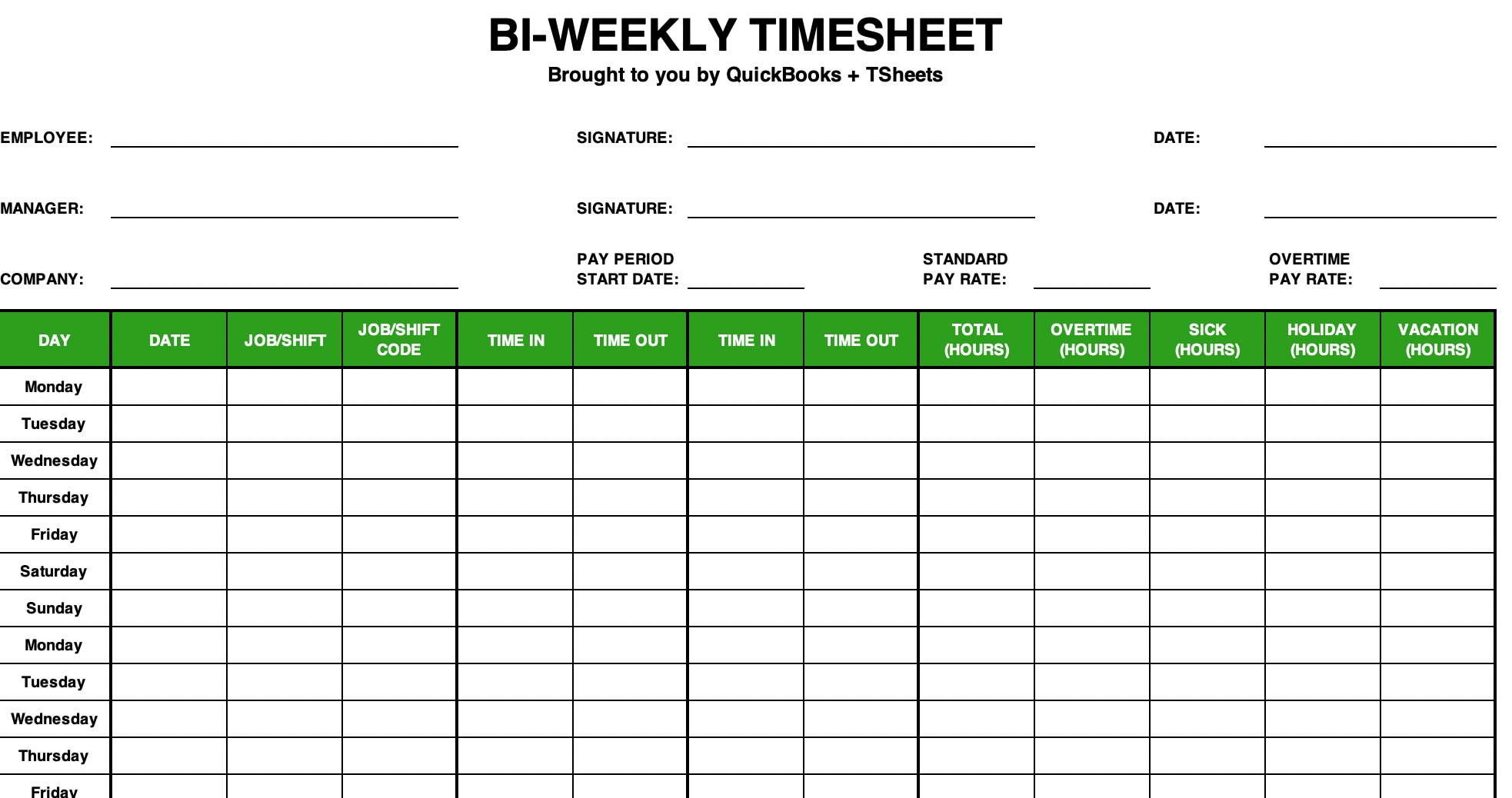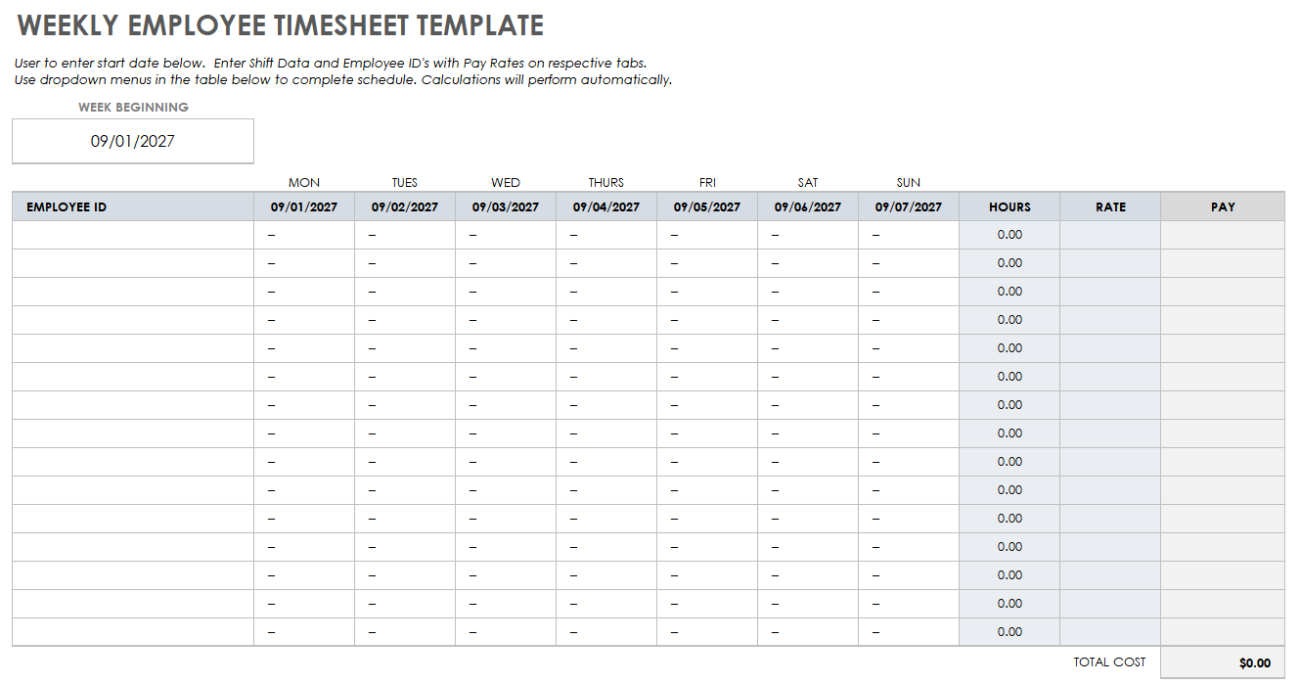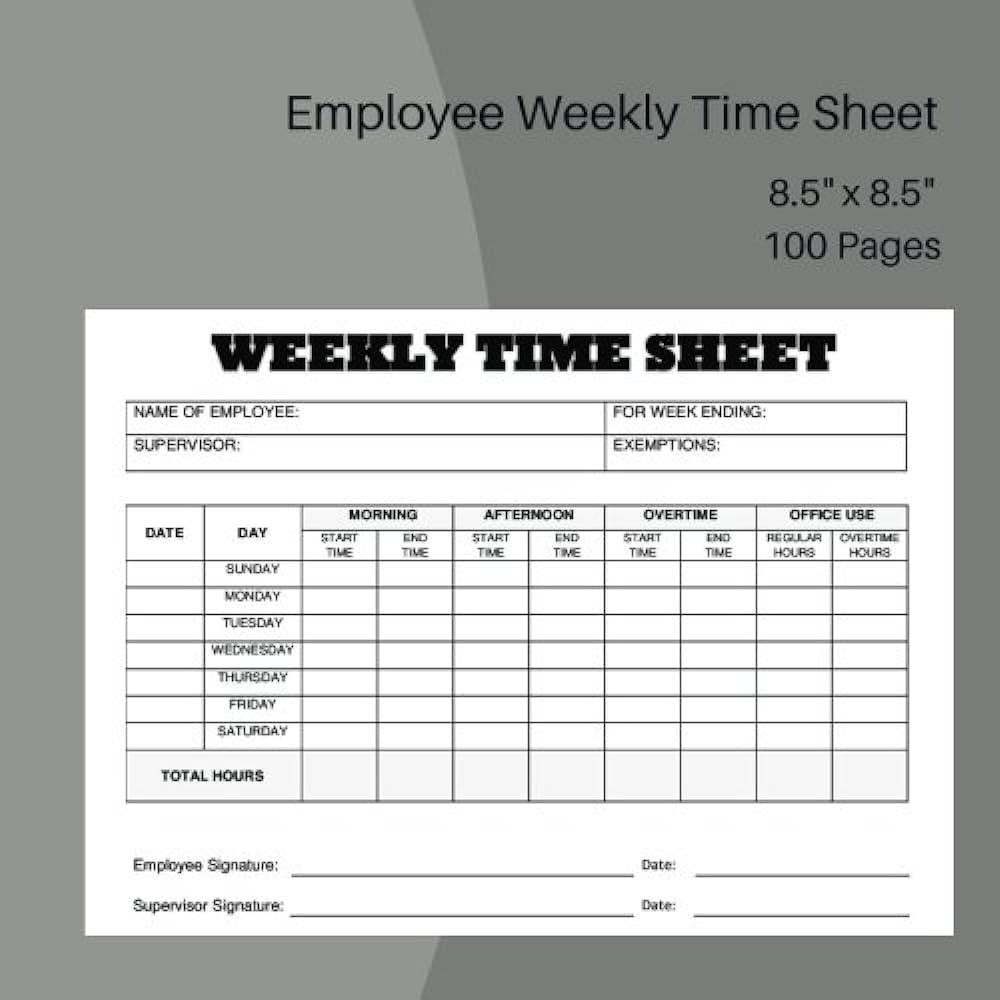Employee weekly timesheets are an essential part of any organization, helping to track the hours worked by employees on a weekly basis. This tool is crucial for both employees and employers, as it ensures accurate payroll processing, compliance with labor laws, and transparency in tracking work hours. By keeping detailed records of time worked, employers can monitor productivity, allocate resources effectively, and identify any potential issues or trends that may need to be addressed. For employees, timesheets provide a clear record of their hours worked, ensuring they are properly compensated for their time and efforts.
What is an Employee Weekly Timesheet?
An employee weekly timesheet is a document used to record the number of hours an employee has worked during a specific week. It typically includes information such as the employee’s name, the week’s dates, the hours worked each day, total hours for the week, and any overtime hours. Timesheets can be filled out manually on paper or digitally using time tracking software.
The Purpose of Employee Weekly Timesheets

Image Source: etilize.com
The primary purpose of employee weekly timesheets is to accurately record and track the hours worked by employees. This information is crucial for several reasons:
– Payroll Processing: Timesheets serve as the basis for calculating employee salaries, wages, and benefits.
– Compliance: Timesheets help ensure that employees are paid in accordance with labor laws and regulations.
– Resource Allocation: By tracking employee hours, managers can allocate resources effectively and make informed decisions about staffing levels.
– Productivity Monitoring: Timesheets provide data on employee productivity and efficiency, helping to identify areas for improvement.
– Legal Protection: Accurate timesheets can protect both employees and employers in case of disputes over hours worked or compensation.
Why Employee Weekly Timesheets Are Important
Employee weekly timesheets play a vital role in ensuring transparency, accountability, and fairness in the workplace. By accurately tracking hours worked, employers can demonstrate compliance with labor laws, prevent payroll errors, and maintain a record of employee productivity. For employees, timesheets offer assurance that they will be paid fairly for their work and provide a clear record of their time and efforts. Overall, timesheets help to create a culture of trust, efficiency, and professionalism within an organization.
How to Fill Out an Employee Weekly Timesheet

Image Source: intuit.com
Filling out an employee weekly timesheet correctly is essential to ensure accurate record-keeping and payroll processing. Here are some tips to help you fill out your timesheet effectively:
– Record Hours Daily: It’s best to fill out your timesheet each day to avoid forgetting hours worked or making errors.
– Be Specific: Record start and end times for each work period to ensure accurate tracking of hours.
– Include Breaks: Don’t forget to record any meal or rest breaks taken during the day.
– Double-Check: Review your timesheet for accuracy before submitting it to your supervisor.
– Submit On Time: Make sure to submit your timesheet by the deadline to ensure timely payroll processing.
1. Record Hours Daily
It’s important to record your hours worked each day to ensure accuracy and avoid missing any work hours.
2. Be Specific

Image Source: workyard.com
Include start and end times for each work period to provide detailed information on when you were working.
3. Include Breaks
Don’t forget to record any meal or rest breaks taken during your workday to account for all hours worked.
4. Double-Check

Image Source: smartsheet.com
Review your timesheet for any errors or omissions before submitting it to your supervisor to ensure accuracy.
5. Submit On Time
Make sure to submit your timesheet by the deadline to ensure timely payroll processing and avoid any delays in payment.
6. Keep a Copy

Image Source: generalblue.com
It’s a good idea to keep a copy of your timesheets for your records in case you need to refer back to them in the future.
7. Seek Clarification
If you have any questions or need clarification on how to fill out your timesheet, don’t hesitate to ask your supervisor or HR department for assistance.
8. Be Honest

Image Source: media-amazon.com
Always be honest and accurate when filling out your timesheet to maintain trust and integrity in the workplace.
Tips for Successful Employee Weekly Timesheet Management
Managing employee weekly timesheets effectively requires attention to detail, organization, and consistency. Here are some tips to help you successfully track and manage your timesheets:

Image Source: generalblue.com
Set Reminders: Use calendar reminders or alarms to prompt you to fill out your timesheet daily.
Use Time Tracking Software: Consider using time tracking software to automate the process and make it easier to track your hours.
Communicate with Your Team: Keep your team informed about timesheet deadlines and requirements to ensure everyone is on the same page.
Review Regularly: Take time to review your timesheets regularly to spot any errors or inconsistencies.
Ask for Feedback: If you’re unsure about how to fill out your timesheet, ask for feedback from your supervisor or colleagues.
Be Proactive: Take ownership of your timesheets and be proactive in managing and tracking your hours worked.
In Conclusion
Employee weekly timesheets are a crucial tool for both employees and employers, providing a record of hours worked, ensuring accurate payroll processing, and promoting transparency in the workplace. By following best practices for filling out and managing timesheets, employees can help maintain efficiency, accuracy, and compliance with labor laws. Ultimately, employee weekly timesheets play a vital role in supporting a productive, fair, and well-functioning work environment.